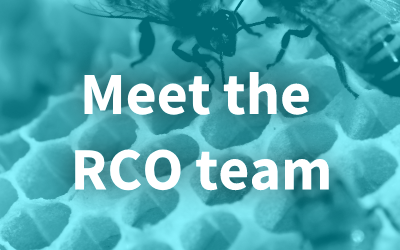
Official Development Assistance (ODA) funded research activity focuses on outcomes which promote the long-term sustainable growth of countries on the Organisation for Economic Cooperation and Development (OECD) Development Assistance Committee (DAC) list.
ODA is administered using the promotion of the economic development and welfare of low and middle income countries (LMICs) as its main objective. To be counted as ODA, all activities (research or otherwise) must qualify under rules set down by the OECD.
- Discover if your research is ODA compliant
Establishing if you research project is ODA compliant
To be ODA-eligible, the OECD states that research projects should be 'directly and primarily related to the problems of developing countries'. ODA must be embedded in your project from the beginning, and not added as an afterthought.Key questions to consider when determining whether your proposal is ODA compliant:
- Is the project or activity addressing the economic development and welfare of one or more LMICs?
- Is this its primary motivation?
- Is the LMIC in question on the OECD-DAC list?
- Is the primary beneficiary either developing countries or developing and developed countries?
- Is the country likely to be remain on the DAC list for the entire timescale of the funding?
UCL Guidance Documents
Which countries are eligible for funding?
Only countries which are listed as Development Assistance Committee (DAC) countries on the OECD DAC list are eligible to receive ODA funding. The DAC list is compiled by OECD, based on per capita GNI. DAC locations graduate from the list if they remain high income countries for three years.Additional Information in order to decide if your project is ODA compliant:
- ODA application guidance
Below are links to useful ODA guidance documents compiled by UCL and relevant external bodies.
UCL ODA guidance documents:
UCL ODA research guide
UCL ODA checklist
Decision tree for ODA complianceContact Helen Hopkins if you would like to see example Pathway to impact or ODA compliance statements
External guidance documents:
DAC list of ODA recipients
OECD definition of ODA
UK Aid Strategy
GCRF ODA guidance
Newton Fund ODA guidance
How to write a fundable proposal for the GCRFODA/GCRF project categorisation on Worktribe
It is important that applicants now capture ODA funding sources selecting the relevant tag in worktribe.
Information on overseas partners must be now recorded in the Risk Assessment section.
- Further Support & Information
UK Collaborative on Development Research (UKCDR)
The UKCDR hub can be used to explore and understand the main funding opportunities in this arena within the UK. The UKCDR is a group of fourteen UK government departments and research funders working in international development.
'Researcher Hub' (support for researchers involved in development science)Universities UK International
UUKi is the international arm of Universities UK, representing UK universities and acting in their collective interests globally. They actively promote universities abroad, provide trusted information for and about them, and create new opportunities for the sector. LINK [https://www.universitiesuk.ac.uk/International]Independent Commission for Aid Impact (ICAI)
All UK aid spending for international development is scrutinised by the Independent Commission for Aid Impact (ICAI) which contributes to the accountability of UK ODA spend by examining whether it is delivering value for money.- Due Diligence
Recipients of ODA funding are required to carry out appropriate due diligence checks on third parties who undertake activities funded by a grant (overseas partners).
What is due diligence (DD)?
In this context, DD refers to the gathering and review of information on potential partners to inform an assessment of the risk of entering into a collaboration with that partner. (Once a collaboration has been agreed, DD involves ensuring compliance with the agreement and associated funder requirements.)
For international partnerships, DD entails reviewing:- the regulatory and statutory environment of the country/countries in which the partnership will operate
- the legal, financial and academic circumstances of foreign partners
The scope and scale of DD can vary according to the particular collaboration and partner(s) concerned. UCL suggests that PIs should adopt a proportionate approach relative to the stage of the research application process.
UCL Due Diligence Process
UCL proposes a two-stage due diligence process. Full details of the process and of the draft due diligence policy can be found on a dedicated page accessed via the button below, which you need to have a UCL login to access.Further information on UCL DD process (login required)
Please ensure you gather and record relevant documentation related to any due diligence undertaken.Please contact your school research facilitation team or research services for further guidance and information.
- Contacts
If you would like further information on preparing a specific ODA application (including Global Challenges Research Fund) or on ODA in research in general, please contact the SLMS ODA Strategic Research Facilitator, Helen Hopkins: Email: h.hopkins@ucl.ac.uk. Tel: +44 (0)20 3108 6650
Helen joined UCL in 2011. She initially worked as a Research Manager in the UCL Institute of Global Health, coordinating UCL’s Grand Challenge for Global Health. Since December 2015 she has been part of the UCL SLMS Research Coordination Office. She previously worked as a Research Facilitator at Royal College of Pediatrics and Child Health (RCPCH) and prior to that for international NGO’s in the UK and overseas.
If you are based in another UCL school please contact your relevant school research facilitator for advice prior to submission of an application.
SLASH / IOE:
Henriette Bruun (Director of Research Facilitation) - h.bruun@ucl.ac.uk
Jacob Leveridge (Deputy Director of Research Facilitation) - j.leveridge@ucl.ac.uk
Steve Morrison (School Research Facilitator) - s.morrison@ucl.ac.ukWebsite: www.ucl.ac.uk/research/slashioefunding | Twitter: @UCL_SLASHIOE_RF
BEAMS:
Jennifer Hazelton (School Research Facilitator) - j.hazelton@ucl.ac.uk
 Close
Close







